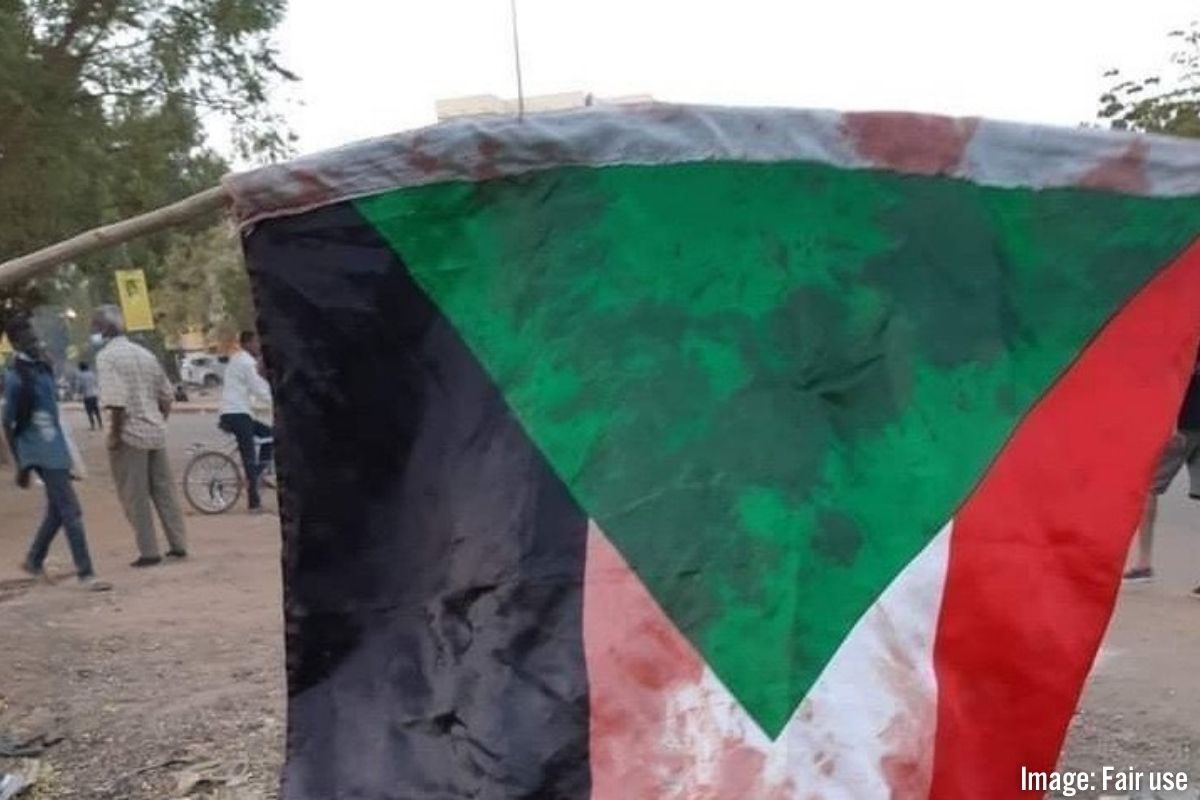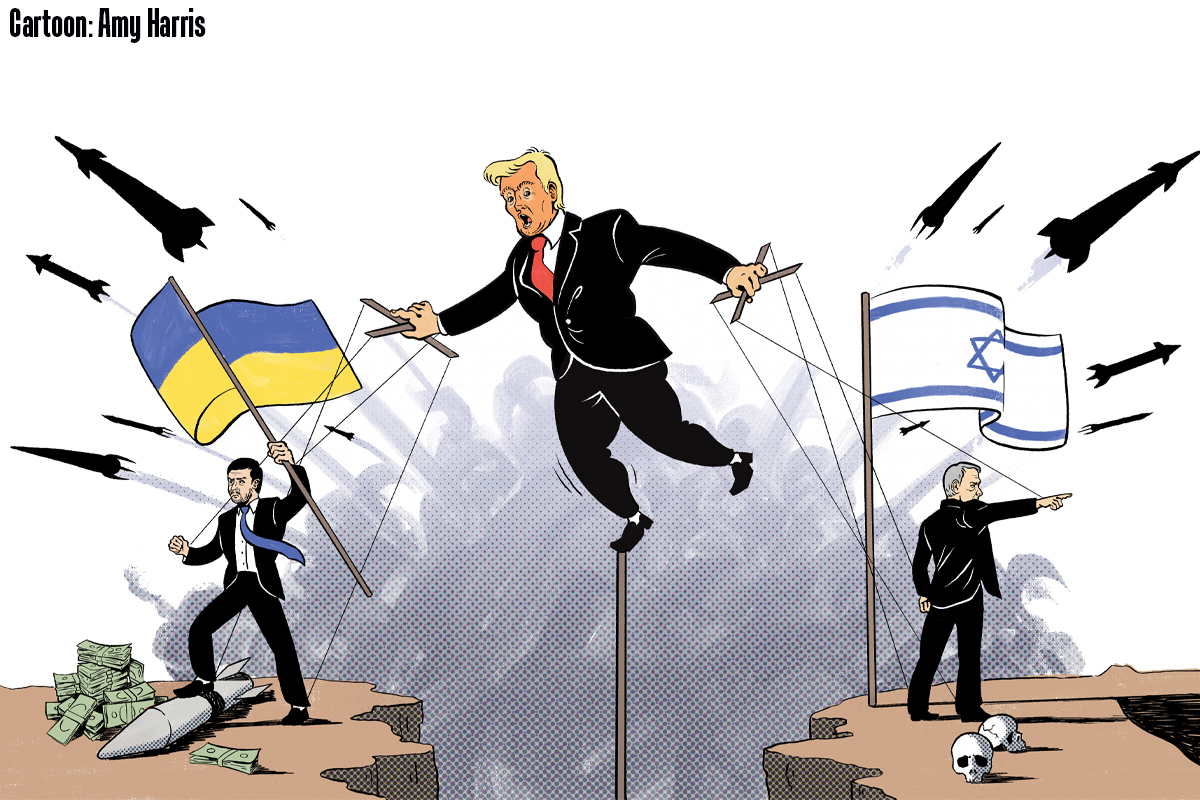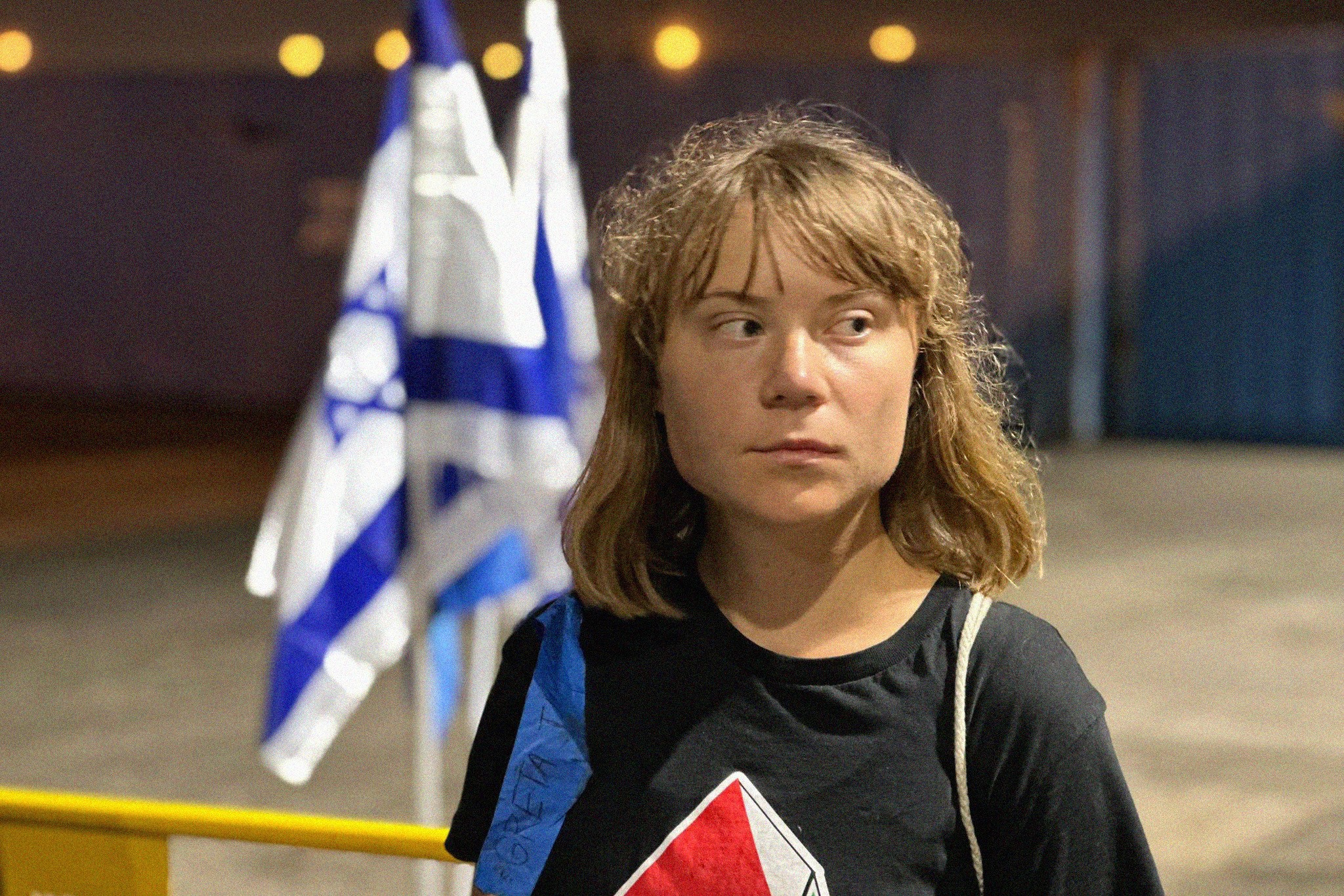After years of revolution and counter-revolution, the movement in Sudan is at a decisive juncture: either the masses organise to take power, or the reactionary junta will crush them. The question of leadership is vital.
The Sudanese Revolution is at a critical crossroads. Security forces are killing, raping, and brutalising the masses with impunity. The revolution has responded by launching new protests, locking down neighbourhoods, and holding a two-day general strike – although the latter was undermined by a lack of organisation. We must be clear: time is short.
The bankrupt liberals, thrown to the head of the revolutionary movement in 2019, wasted the people’s blood on a criminal strategy of negotiation with the military. Meanwhile, the heads of the resistance committees and revolutionary professional organisations continue to emphasise ‘peaceful’ methods in the face of counter-revolutionary barbarism.
Above all, there is no plan to arrest the generals and take power. This is leading the masses towards a bitter and bloody defeat.
Since the military coup in October last year, the masses have been locked in an almost daily struggle with the counter-revolution, led by Generals Abdel Fattah al-Burhan and Hemeti. To date, at least 71 people have been killed and thousands wounded. The exact number of casualties is unknown, but doubtlessly far higher than the official figures.
The Rapid Support Forces (RSF), a paramilitary unit based on the feared Janjaweed militias, under Hemeti’s command, has spearheaded a vicious campaign of terror against the revolutionary masses.
But when naked repression alone proved too slow in stopping the movement last year, the generals reinstated Prime Minister Abdalla Hamdok in November, whom they had previously overthrown and arrested in October. Hamdok was placed at the head of a new ‘technocratic’ transitional government, which the junta hoped would provide a thin veneer for the return of military dictatorship, and divert the revolution.
To be Or not To be this is the sudan street today#january_17#مليونية17يناير pic.twitter.com/9Dde3V3cuS
— Merghani Ali (@merghani783) January 17, 2022
Six weeks later, however, it became clear that this attempt to throw dust in the masses’ eyes had failed. Already discredited by the brutal austerity programme he had carried out in 2019-20 at the behest of the IMF – while sharing power with the same generals the masses had been fighting – Hamdok shattered any lingering authority with the streets by entering into this Faustian pact.
Always an accidental figure – a former UN economist, who wasn’t even in the country when the 2019 revolution was raging – Hamdok was pushed to the forefront by its liberal leaders and their imperialist allies from the so-called international community.
After he was reinstated, protestors on demonstrations mocked him as “Secretary of the Coup”. A 40-year-old mechanic and protestor stated to the Financial Times in November:
“Hamdok should fight for the people, not for the military. We are going to keep protesting until we have a full civilian government with no military in it – never again the military.”
After Hamdok’s resignation, the imperialist hypocrites of the UN swept in to organise talks, in an attempt to chart a “sustainable path forward towards democracy and peace”. These sham negotiations were also welcomed by the League of Arab States – with the Egyptian regime (itself a military dictatorship) offering itself as a ‘mediator’.
The military has already shown it has no interest in tolerating civilian rule in any form. It only accepted the power-share arrangement in 2019 in order to stall for time. This proposal for talks is nothing but a manoeuvre by the imperialists and murderous regimes in the region to defuse the revolution, and legitimise the counter-revolutionary generals’ claim to power.
What they want is stability; and what they fear most of all is the Sudanese Revolution spilling over into the rest of the Horn of Africa and the Arab world.
The UN-brokered talks were rightly rejected by the masses. The Resistance Committees Coordination (the overall body representing the neighbourhood resistance committees), Communist Party, and Sudanese Professional Association (SPA) all reaffirmed the main slogans of the revolution: no negotiations, no compromise, no power-sharing with the military.
These groups feel the pressure of the streets behind them, which are fiercely rejecting any moves towards further talks with the generals.
For example, a recent rally by the Forces of Freedom and Change (FFC) – a coalition of opposition groups that joined the transitional government after the fall of the Omar Bashir regime in 2019 – was broken up by protestors using repurposed teargas grenades, after the FFC helped broker the deal between the military and Hamdok in November.
Feeling this pressure, despite the FFC originally saying it would ‘discuss’ the UN’s invitation, its spokesman Wagdy Saleh was forced to backtrack and reject ‘any partnership’ with the military. Only small groups of quislings (like the so-called ‘Friends of Sudan’), who have no authority with the masses, will dare to attend these talks.
Indeed, with the radicalisation of the masses in recent months, the more mainstream political groups like the FFC and even SPA are being increasingly sidelined in favour of the resistance committees.
In addition to organising protests, these bodies have also been providing essential services that are not forthcoming from the regime. These include purchasing school and medical equipment, digging wells, cleaning streets, and organising ‘solidarity markets’ where basic goods are sold at cost price to the poorest families.
As Sudanese activist Marine Alneel stated:
“We’re seeing on a lot of international media outlets that these protests are being called for by the Forces of Freedom and Change or the Sudanese Professionals Association, that is far from the reality. In reality, the entities that are leading this movement are the neighbourhood resistance committees, which have developed mainly in 2019 to help organise the protests in neighbourhoods, in different neighbourhoods, and are now the leading entity announcing the protests and are actually the voice of the people.”
This is a positive step, which shows that the Sudanese masses are increasingly seeing the resistance committees as their own bodies of power, forged in struggle.
Counter-revolution on the offensive
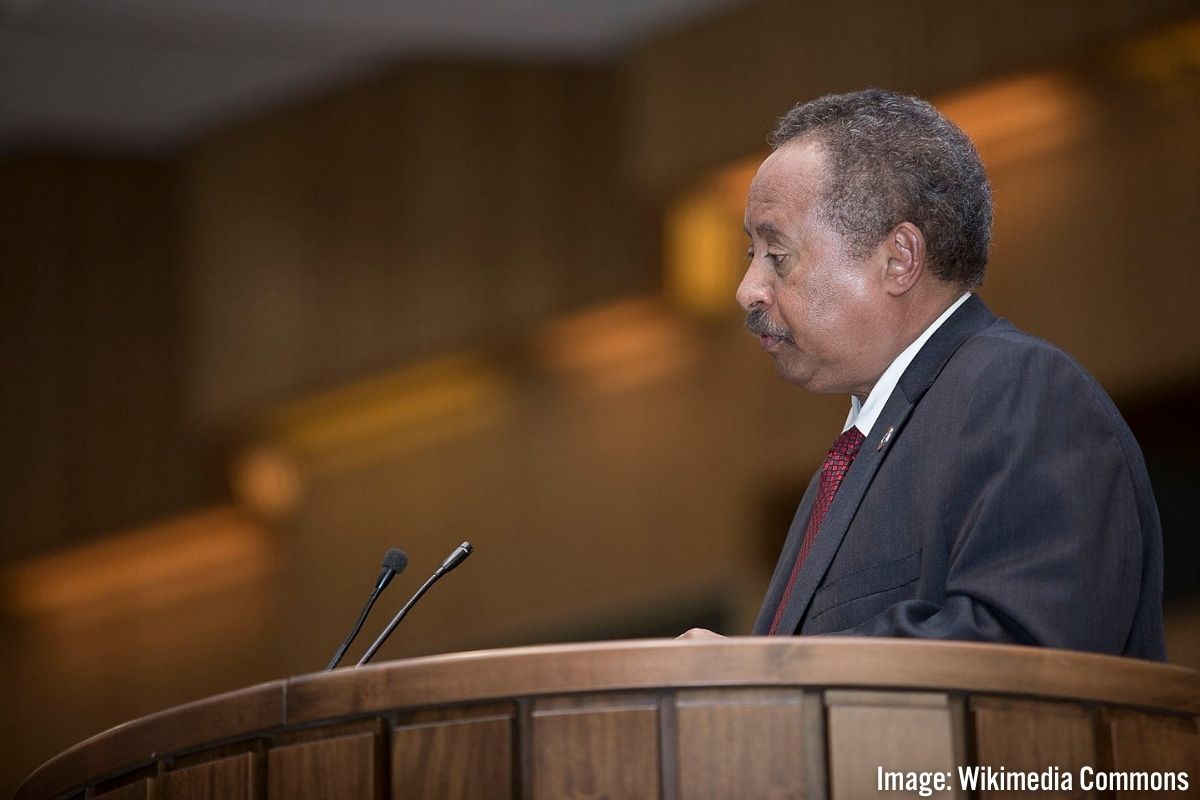
With Hamdok’s resignation, however, any pretence of a ‘democratic transition’ has been cast off. Nothing now remains but an open confrontation between the revolution and counter-revolution.
This represents a struggle of living forces, and the outcome is not settled. But we must be honest. Despite the inspiring courage and tenacity of the Sudanese masses, the initiative and momentum are currently with the junta. With Hamdok gone, the military is no longer even pretending to be interested in respecting constitutional, civilian authority. The mask is falling.
The junta is feeling confident and is intensifying repression. At least seven people were killed and hundreds wounded on Monday 17 January alone, when thousands of protestors from 17 cities came out for the 14th round of nationwide mass demonstrations since the coup last year.
This was one of the deadliest days so far. The masses were relentlessly suppressed by the security forces with tear gas canisters, batons, live ammunition, and even anti-aircraft guns. There have been reports of troops attacking hospitals, barring injured protestors from entering.
In Khartoum, the revolutionaries were not even allowed to bury their dead in peace. A funeral procession was attacked by security forces, who apparently tried to run mourners over with their armoured vehicles. There is no depth to the barbarity of the counter-revolution.
In response to the deaths on Monday, 40 trade unions and professional organisations called a two-day general strike on Tuesday and Wednesday. On top of that, the Central Committee of Sudanese Doctors (a professional and trade union body representing medics) ordered its members to withdraw from hospitals under military control, while protesters began barricading the roads in the capital.
In Khartoum, the working-class neighbourhoods of Burri and Jabra were under lockdown. Simultaneously, high school and university students in the capital walked out in protest, refusing to sit their exams.
Unfortunately, these activities were sporadic and badly coordinated, in part due to the continued disruption of telecommunications. The strike was only partially observed, with many shops and businesses remaining open.
This is in stark contrast to the powerful general strikes of May and June 2019 against the Transitional Military Council, which saw almost total observance in the main cities of the country.
Partly, the strike was weakened due to a lack of advance planning, and the short-notice call. A general strike is a serious matter, and must be properly prepared for.
Additionally, three months of constant repression have taken their toll on the masses, coupled with the worsening economic situation in the country. Sudan already owes $60bn in international arrears, exacerbated by the World Bank withholding of $2bn in promised aid. Inflation has soared to 443 percent. And there is a dire shortage of basic commodities such as food and medicine.
“Due to the day-to-day standards of living here, people can’t afford to strike on short notice, it needs proper planning,” a Sudanese correspondent told marxist.com. “For many, two days of strikes are essentially two days of hunger. There’s little to no roadmap but more planned protests from the leaders of the revolution.”
This is the main point. The Sudanese people have shown time and again that they are willing to endure immense sacrifices in their battle against the counter-revolution. But they cannot be expected to put their lives on hold forever, ready to march and strike at the whim of their leaders, without any sense of how to advance the revolution. They are not a tap that can be turned on and off at will to pressure the regime.
Especially when the leaders of the resistance committees and SPA insist on maintaining their bankrupt pacifist methods. Not only must the masses endure hardship, hunger and chaos, but they must also put their lives on the line against a bloodthirsty dictatorship, with no way of defending themselves.
Indeed, the Khartoum state resistance committees recently made a statement that seemed to confess to the implicit fatalism in their own strategy:
“It is our duty to resist [the generals] until we are victorious or they rule an empty country after they have killed us all” [our emphasis].
These are supposed to be the fighting words that will inspire the masses! “March against the military until they give up – or we are all dead!” This is worse than naivety, worse than madness: it is a crime.
Failure of leadership and bankruptcy of pacifism
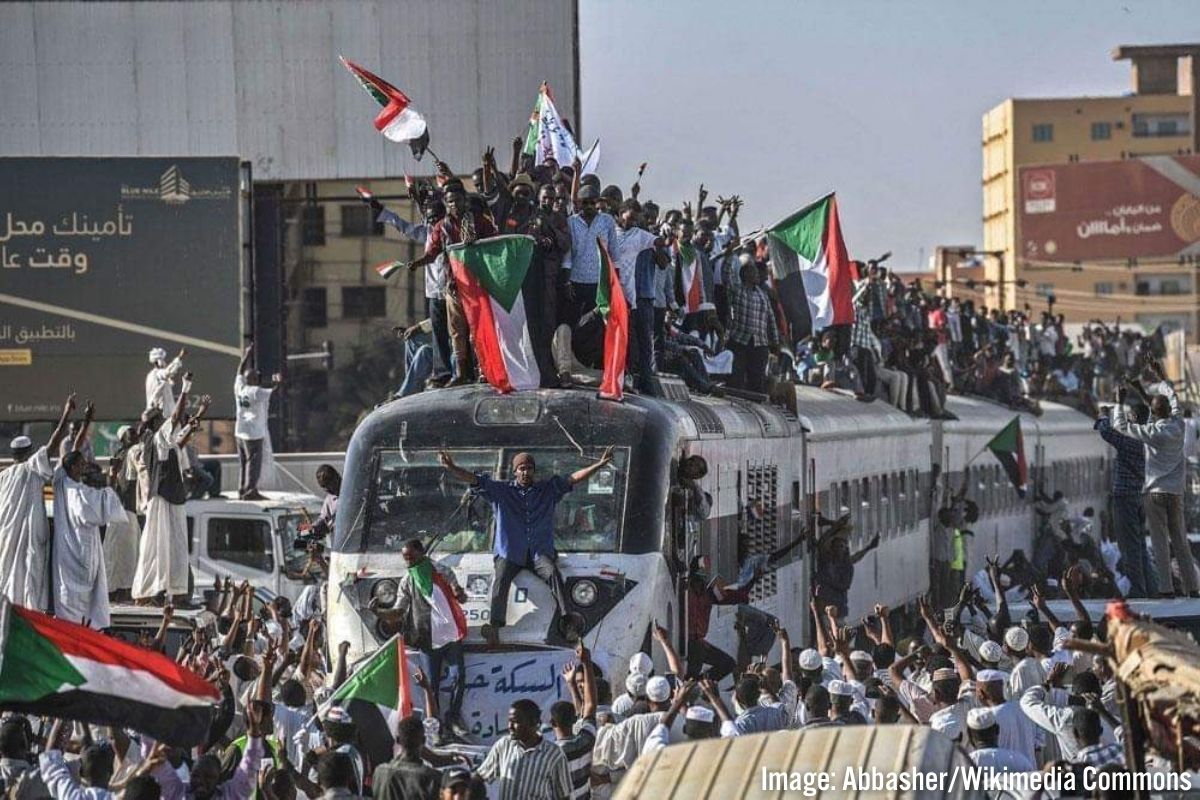
We must say, loudly and clearly: if the Sudanese Revolution is defeated, the main fault will lie with its leadership.
So many opportunities have been missed. In 2019, the masses overthrew two heads of state in three days: Bashir, and his former First Vice-President, Ahmed Awad Ibn Auf, who was manoeuvered into succeeding him by the TMC. The revolution held not one but two mighty general strikes, in May and June 2019. The strength of the movement began to infect the lower ranks of the armed forces.
This ferment is what forced the top brass to oust Bashir in the first place, and explains why the regular troops have largely been billeted in their barracks ever since – with Burhan relying on the RSF and police for most of the recent repression. Then, after the October 2021 coup, the masses moved spontaneously to repel the military, forcing them to a standstill with a massive series of marches and yet another powerful general strike.
The revolution could have taken power ten times over. However, at every stage the liberal leaders sold out the masses by suing for deals with the military: giving the junta time to regroup, and effectively handing power back to them.
Even now, the leaders of the resistance committees have not taken the necessary steps of arming and organising the masses for self-defence. Neither have they made any general appeal to the rank and file of the army. This would have the joint effect of splitting and weakening the counter-revolution, while providing the basis of armed defence committees to protect, arm and train the masses.
They use the excuse that fighting the military openly could spill over into chaotic violence, or lead to a destructive civil war. But the masses are already in the middle of a one-sided civil war, in which only the enemy is prepared to fight.
As Trotsky said of the vacillating leaders of the POUM during the Spanish Civil War, “an excess ‘caution’ is the most baneful lack of caution.” What is needed is not pacifist squeamishness, but coordinated armed resistance.
For instance, when reports came from the regime that a policeman had been stabbed to death at a demonstration, the revolutionary leaders were quick to deny their involvement and reaffirm the ‘peaceful’ character of the movement.
It is possible the junta was lying about this attack (which would have been the first casualty on the side of the regime so far) in order to justify further arrests and repression. This was a tactic they used in 2019.
If the masses are beginning to fight back sporadically against the security forces, who subject them to deadly force on a daily basis, however, the task of the revolutionary leadership is to organise them into disciplined resistance. This will prevent ineffectual, chaotic skirmishes, and repel the violence of the counter-revolution.
Far from ensuring ‘peace’, the refusal to use force has condemned the masses to far-greater bloodshed. And more deaths will come unless these pacifist methods are abandoned. To quote Trotsky once more: “To oppose the slogan of the arming of the workers…means to isolate oneself from the masses and the masses – from arms.”
Furthermore, the masses on the ground have been left to their own devices for months, with no instruction from the Resistance Committees Coordination or the SPA other than an endless schedule of ‘nationwide protests’
At no stage have any of the leaders of the Sudanese Revolution presented a concrete plan to overthrow the junta. All they have done is instruct the masses to keep walking ‘peacefully’ into the sights of the security forces. This remains the case.
The counter-revolution has shown it has no qualms about drowning the revolution in blood. There is no limit to the number of peaceful strikes and million man marches that Burhan and Hemeti will gun down to protect their power and privileges.
The only way forward is for the SPA and resistance committees to organise an open-ended general strike, with the goal of launching a revolutionary insurrection that will bring the junta down, arrest its leaders and supporters, and expropriate their assets.
No time to lose
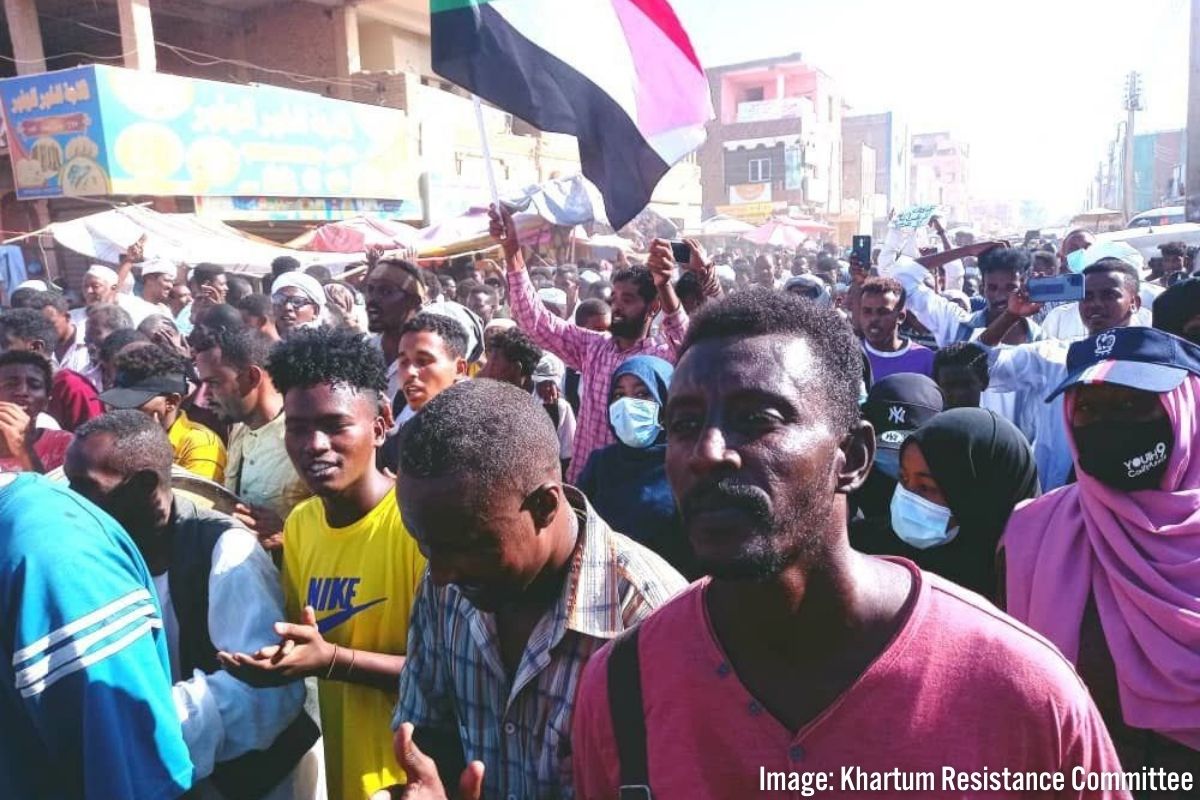
A great deal of precious time has already been wasted. Every passing second strengthens the hands of the generals, and causes more of the masses’ energy to ebb.
This situation could still be turned around. At the beginning of the year, the SPA released a new treaty, agreed upon by “revolutionary forces, armed liberation forces, trade unionists, and political forces”. It proposed the unification of all these bodies under a single Revolutionary Legislative Council.
The purpose of this body would be to “coordinate the positions of the live revolutionary forces…and build its broad base alliance, to strengthen its revolutionary will against kidnapping and mutilation, and to ensure its readiness to take power.”
This is a correct step. But what is needed is not more talk and discussion among the revolutionary forces, but deeds! How exactly will the generals be arrested and power seized? What is the plan? Nobody answers.
If the leaders of the resistance committees made a bold call for an indefinite general strike, and organised the masses for an armed confrontation with the junta, combining these with a general appeal and campaign of fraternisation with the ordinary troops in their barracks, it could revitalise the revolution by presenting a tangible way forward.
Up until now, the resistance committees have insisted they are ‘non-political’ organisations, despite their role in organising a revolution: the most political act imaginable. The task now is to prepare the masses for a struggle to overthrow the generals.
The call for the revolutionary masses to mobilise will find the broadest possible echo if it is linked to a programme that meets aspirations of the masses. The new treaty by the SPA does indeed present a 10-point programme for economic reform, women’s rights, the abolition of the Transitional Military Council and so forth. But these demands lack substance.
Rather than simply promising a ‘new council’ and ‘democracy’ in the abstract, the pledge to convene a constituent assembly would fulfil the revolution’s main political demand for democratic rights and an end to dictatorship.
Meanwhile, the dire economic conditions facing the masses could be immediately improved by using the expropriated wealth of the generals and their lackeys to invest in jobs, services, and the modernisation of infrastructure and agriculture – along with a repudiation of foreign debt.
Even a small party raising such a series of demands and slogans in October would have fundamentally transformed the situation by now. As it stands, this strategy and programme still represent the surest way to galvanise the masses for a counter-offensive against the military.
The Sudanese people have suffered greatly in their fight for democracy and a decent existence. Only socialism in Sudan, as part of a Socialist Federation of Africa and the Middle East, will finally free them from the yoke of dictatorship and imperialist exploitation.
As a Sudanese activist pointed out in a recent interview with the Financial Times, the economic hardship foisted on the country by imperialism has “killed a lot of people even more than the military have killed with weapons. More people have died out of hunger, out of not having the basic health services that are needed.”
She continued:
“People are quitting jobs because they can no longer afford the transportation from their homes to their workplaces and because they already had to move to the peripheries of the city because they can no longer afford to live next to where they work. It’s a deteriorating situation that was praised for so long by the international community that couldn’t care less for anything than opening a new space for investments.”
This is absolutely right – the imperialists celebrated the transitional government of Hamdock and the generals, while it was carrying out austerity policies on their behalf. Now they shed crocodile tears at the military’s refusal to step aside for ‘civilian rule’.
The liberals and so-called international community have shown they offer no solutions. However, there can be no talk of an alternative unless the counter-revolution is destroyed.
At this moment, there can be no hesitation, and no more talk of peace. The generals must be defeated – utterly and completely – or the revolution will face the same fate. As Lenin wrote in response to the vacillating Mensheviks during the 1905 Revolution, when the workers and peasants were waging a life-and-death battle with Tsarism:
“Nothing could be more short-sighted than [the view], seized upon by all the opportunists, that the strike was untimely and should not have been started, and that [the workers] should not have taken to arms. On the contrary, we should have taken to arms more resolutely, energetically and aggressively; we should have explained to the masses that it was impossible to confine things to a peaceful strike and that a fearless and relentless armed fight was necessary. And now we must at last openly and publicly admit that political strikes are inadequate; we must carry on the widest agitation among the masses in favour of an armed uprising… It must, as far as possible, be simultaneous. The masses must know that they are entering upon an armed, bloody and desperate struggle. Contempt for death must become widespread among them and will ensure victory.” [our emphasis]
- No talks, no compromise, no reconciliation!
- For an open-ended general strike and a revolutionary insurrection to bring down the junta!
- Long live the revolutionary masses of Sudan!

